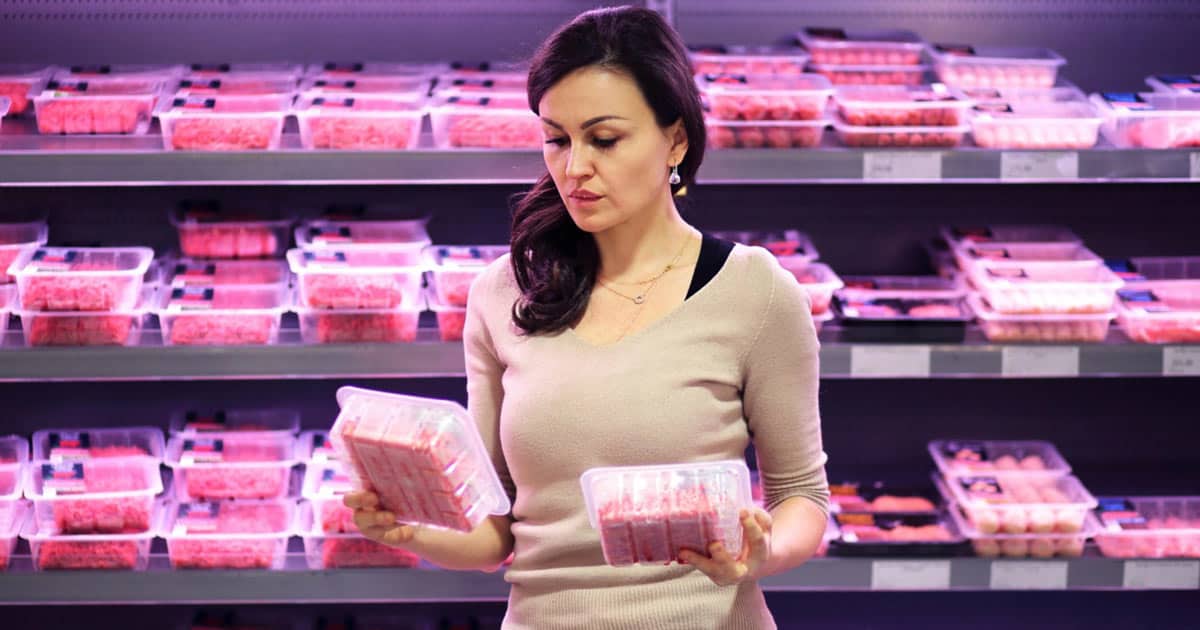“Cloned meat” is about to enter Canadian grocery stores without safety testing, disclosure, or labeling of any kind, after Health Canada quietly dismantled its 22-year policy that protected the public food supply from such products.
The Canadian government’s previous policy treated cloned products as novel foods requiring pre-market review.
The decision removes all oversight and allows cloned “meat” and “milk” products, and the offspring of cloned animals, to be sold to millions of Canadians with no indication whatsoever of their lineage.
The move immediately set off alarm bells in the United States.
The U.S. Food and Drug Administration (FDA) approved cloned meat back in 2008 and allowed it to flood the food supply without labels.
Many Americans are only now discovering that they have likely been eating cloned products for years.
Online, the reaction has been explosive, with users calling the situation unacceptable and demanding transparency.
Some say they likely purchased cloned products unknowingly, blasting regulators for failing consumers and hiding the true origins of what is being sold on store shelves.
Opposition to cloned meat spans ethical, religious, and safety concerns.
Critics warn of serious animal-welfare issues, pointing to high rates of clone miscarriages, deformities, suffering, and death.
Others warn about potential contamination from antibiotics or hormones used on sick clones, animals that would never survive long enough to enter the food chain directly, but whose offspring do.
Ethical concerns also run deep, with many uncomfortable about the technology itself or warning that its normalization could open the door to attempts at human cloning.
Cloned meat is banned entirely in Europe.
In Europe, cloning farm animals and selling products from their offspring is illegal.
However, Canada is moving in the opposite direction.
Beginning next year, cloned animals and their descendants will no longer be considered novel foods, eliminating all safety assessments and all labeling requirements.
The process begins by creating a genetically identical copy of a “desirable” animal.
That clone is then bred normally, and its offspring enter the food chain, indistinguishable from traditional meat, except consumers are never told what they’re buying.
The decision has sparked strong backlash from producers like duBreton, a major Certified Humane and organic pork supplier.
The company issued a warning to Canadians:
“People have the right to choose for themselves.
“Quietly changing the definition of a novel food takes that choice away.”
Health Canada’s justification mirrors the FDA’s longstanding position that regulators claim cloned meat and milk are “not materially different” from traditional products and therefore do not require labels.
In the U.S., regulators expect that it is mostly the offspring of clones, not the clones themselves, that end up in the food supply.
But without mandatory labeling, American consumers have no reliable way to know whether their purchases come from cloned lineage.
Consumer advocates argue that the lack of transparency is unacceptable and that regulators are pushing cloned meat into stores without giving the public any meaningful way to make informed choices.
The Center for Food Safety blasted the FDA’s stance, saying:
“FDA’s decision flies in the face of massive public opposition to animal cloning, widespread scientific concerns about the risks of eating food from clones, and troubling animal cruelty and ethical concerns associated with the cloning process.
“The FDA admitted in its own risk assessment that a vast quantity of animal clones are unhealthy and would not be suitable for the food supply.”
Meanwhile, cloning technology continues to advance rapidly.
Scientists have successfully cloned rhesus monkeys, including a healthy clone named Retro born in 2020, hailed by researchers as a breakthrough that “turned impossible to possible.”
Last year, China successfully cloned Tibetan goats using the same technique used to clone Dolly the Sheep in 1996.
Now, Canada is preparing to introduce cloned meat into grocery stores without telling the public.
For millions of consumers on both sides of the border, cloned meat is here, and regulators don’t plan to warn you.
READ MORE – Real Meat Much Healthier Than Fake Plant-Based ‘Alternatives,’ Study Finds

Our comment section is restricted to members of the Slay News community only.
To join, create a free account HERE.
If you are already a member, log in HERE.